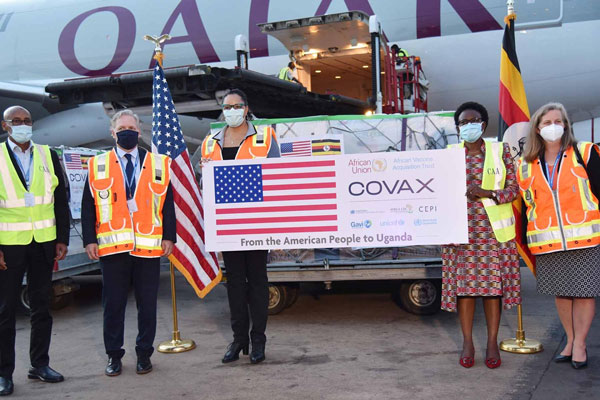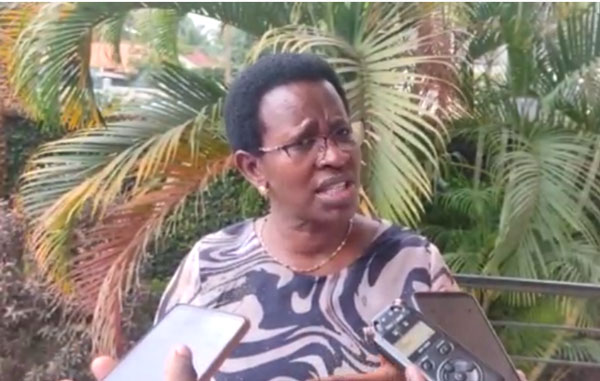
Negative perceptions prevent Ugandans from taking up COVID-19 vaccines
Kampala, Uganda | THE INDEPENDENT | The Ministry of Health still has 13.4 million unutilized COVID-19 vaccines, the Public Accounts Committee – PAC Central Government has learned. The Health Ministry Permanent Secretary, Dr. Diana Atwine, says that the country risks losing huge sums of money that was used to procure the vaccines if they expire without being utilized.
Some of the vaccines are scheduled to expire in August and September this year. She attributed the low uptake of the vaccine to negative perceptions about the side effects and the belief by Ugandans that COVID-19 no longer poses a life-threatening risk.
She was appearing before the committee alongside other officials from the Ministry of Health on Wednesday to respond to a recent forensic investigation by the Auditor General, John Muwanga into the utilization of COVID-19 response funds during financial years 2019/2020 and 2020/2021.
The forensic investigation was informed by a resolution of Parliament on a report of the Parliamentary Taskforce on the National COVID-19 Response, which requested the Auditor General to conduct investigations into the COVID-19 funds.
The main objective of the forensic investigation was to ascertain whether all COVID-19-related spending was done in accordance with existing laws, policies, and guidelines, whether there was any loss in expenditure and clarify responsible officers, and to make recommendations for better use of COVID-19-related funds.
In her submissions to PAC-Central Government, Atwine said that the Ministry’s appeals for people to take up vaccines are not adhered to, given the perception that Uganda is out of danger. Asuman Basalirwa, the Committee Vice Chairperson questioned whether there was a possibility that the vaccines can be sold to other countries before the expiry dates.

Atwine said that all African countries bought the COVID-19 vaccines at the same time and that those in the region like the Democratic Republic of Congo (DRC), South Sudan, and Kenya are also stuck with unused vaccines. She revealed that on her recent visit to South Africarevealed that the country was also stuck with vaccines.
Parliament’s Public Accounts Committee –PAC Central Government on Wednesday also queried the failure of the Ministry of Health to access Covid-19 vaccines worth sh41 billion in the financial year 2019/2020.
The vaccines in question were to be bought through the United Nations Children’s Fund (UNICEF) to help Uganda’s response to the Covid-19 fight.
The committee is currently considering a recent forensic investigation report by the Auditor General into the utilization of Covid-19 response funds during the financial years 2019/2020 and 2020/2021.
The forensic investigation was informed by a resolution of Parliament on a report of the Parliamentary Taskforce on the National Covid-19 Response which requested the Auditor General to conduct the investigation on Covid-19 funds.
The main objective of the forensic investigation was to ascertain whether all Covid-19-related spending was applied appropriately in accordance with existing laws, policies, and guidelines, whether there was any loss in expenditure and clarify responsible officers, and to make recommendations for better use of Covid-19-related funds.
In the report, Auditor General John Muwanga noted that by June 2022 when he concluded the auditing process, the vaccines in question had not been delivered.
Muwanga also reported that the Ministry spent 7.5 billion Shillings on a Chinese company to provide temporary modular houses for health workers at the border points during Covid-19, but only two houses were delivered. PAC learned that each of the houses accommodating six health workers, was to cost 540 million Shillings.
The Committee Chairperson Medard Sseggona tasked Permanent Secretary Atwine to explain why the vaccines had not been delivered on time.
In response, Atwine said that most African countries did not access vaccines despite having money since those in the West were given priority.
She explained that Uganda thought UNICEF would negotiate on its behalf but this was impossible since manufacturing countries like India first gave priority to their citizens.
In regard to the modular houses, Atwine said that they gave the contractor many extensions, up to a time when the Ministry wrote to the Solicitor General seeking termination of the contract.
She told the committee that the Ministry of Health received a response last week and that the process of termination has now started and that payments for only work done were made.
****
URN
 The Independent Uganda: You get the Truth we Pay the Price
The Independent Uganda: You get the Truth we Pay the Price





